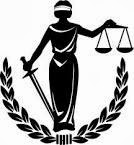
Criminal proceedings can be instituted in courts vested with criminal jurisdiction by persons or authorities competent to do so. The 1999 Constitution of the Federal Republic of Nigeria (CFRN), and various enactments also vest powers on these authorities:
– The Attorney-General
The Attorney General of the Federation is the Chief Law Officer of the Federation while the Attorney General of the State is the Chief Law Officer of the State.
The office of the A-G. is created under the provisions of sections 171(1) and 211(1) of the 1999 Constitution. By these provisions, each A-G., has the power to institute, take over and to discontinue criminal proceedings before a Court in Nigeria in his respective jurisdiction, except in a Court Martial.
– The Police
The power of the Police to institute criminal proceedings derives from section
23 of the Police Act, Cap P.19, Laws of the Federation of Nigeria (LFN), 2004. It provides thus:
23 of the Police Act, Cap P.19, Laws of the Federation of Nigeria (LFN), 2004. It provides thus:
“Subject to the provisions of Sections 160 and 191 of the Constitution of the Federal Republic of Nigeria (which relate to the power of the Attorney-General of the Federation and of a State to institute and undertake, take over and continue or discontinue criminal proceedings against any person before any court of law in Nigeria), any Police Officer may conduct in person all prosecutions before any court whether or not the information or complaint is laid in his name”.
– Private persons
Private persons may institute criminal proceedings against a person alleged to have committed an offence by laying a complaint before a court – section 59(1) of CPA, and 143(e) of CPC.
By section 59(1) of CPA, the power of a private person to make a complaint against any person is subject only to statutory provisions, which says that only a particular person or authority may make a particular complaint (as a matter of procedure).
Instances of statutory provisions that may limit the powers of a private person to lay a complaint includes:
Section 98(c)(ii) of the Criminal Code which provides that no proceedings for an offence of official corruption may be commenced against a judicial officer save upon a complaint or information signed by or on behalf of the Attorney General.
Section 52(2) of the Criminal Code also provides that a person shall not be prosecuted for the offence of sedition unless the consent of the Attorney General is obtained.
Also, by virtue of section 142(1) of the CPC, any complaint of offences such as adultery and related offences itemised in section 387 and 389 of the Penal Code shall only be made by the husband, father, or guardian of the woman or girl involved.
– Special prosecutors.
The statute creating a particular offence may specify the person or class of persons who may institute proceedings in respect of the same offence. For instance Section 176(2) of the Customs and Excise Management Act (CEMA), Cap C.45 LFN, 2004 provides that only the Attorney General of the Federation can prosecute for offences under the Act after the board must have sanctioned the same . Also, Section 66 of the Factories Act, also vests power of prosecution in respect of factory offences on the Inspector of Factories.
As a general rule, there is no time limit within which to commence criminal proceedings against an offender. In other words, proceedings may commence at any time after the commission of the offence. There are, however, some statutory exceptions:
Sedition – Under section 52(1) of the Criminal Code, proceedings in respect of sedition must be commenced within six months.
Treason and Treasonable Felony – Under section 43 of the Criminal Code, criminal action in respect of persons and treasonable felony must be commenced within two years.
Having Carnal Knowledge of a Girl under 16 – Contrary to sections 218 and 221 of the Criminal Code, offences under these two sections must be commenced within two months.
Offences under CEMA – Under section 176(3) of the Customs and Excise Management Act, offences must be commenced within 7 years.
Adedunmade Onibokun Esq.
@adedunmade
